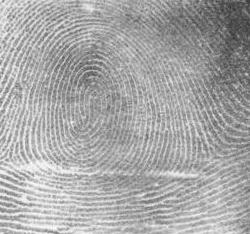Related Research Articles
The following outline is provided as an overview of and topical guide to criminal justice:
Burglary, also called breaking and entering and sometimes housebreaking, is the act of entering a building or other areas without permission, with the intention of committing a criminal offence. Usually that offence is theft, robbery or murder, but most jurisdictions include others within the ambit of burglary. To commit burglary is to burgle, a term back-formed from the word burglar, or to burglarize.
An inchoate offense, preliminary crime, inchoate crime or incomplete crime is a crime of preparing for or seeking to commit another crime. The most common example of an inchoate offense is "attempt". "Inchoate offense" has been defined as the following: "Conduct deemed criminal without actual harm being done, provided that the harm that would have occurred is one the law tries to prevent."
In criminal law, the intoxication defense is a defense by which a defendant may claim diminished responsibility on the basis of substance intoxication. Where a crime requires a certain mental state to break the law, those under the influence of an intoxicating substance may be considered to have reduced liability for their actions. With regard to punishment, intoxication may be a mitigating factor that decreases a prison or jail sentence. Numerous factors affect the applicability of the defense.
Solicitation is the act of offering, or attempting to purchase, goods and/or services. Legal status may be specific to the time or place where it occurs. The crime of "solicitation to commit a crime" occurs when a person encourages, "solicits, requests, commands, importunes or otherwise attempts to cause" another person to attempt or commit a crime, with the purpose of thereby facilitating the attempt or commission of that crime.
Under the English common law, an accomplice is a person who actively participates in the commission of a crime, even if they take no part in the actual criminal offense. For example, in a bank robbery, the person who points the gun at the teller and demands the money is guilty of armed robbery. Anyone else directly involved in the commission of the crime, such as the lookout or the getaway car driver, is an accomplice, even if in the absence of an underlying offense keeping a lookout or driving a car would not be an offense.
Articles related to criminology and law enforcement.
An attempt to commit a crime occurs if a criminal has an intent to commit a crime and takes a substantial step toward completing the crime, but for reasons not intended by the criminal, the final resulting crime does not occur. Attempt to commit a particular crime is a crime, usually considered to be of the same or lesser gravity as the particular crime attempted. Attempt is a type of inchoate crime, a crime that is not fully developed. The crime of attempt has two elements, intent and some conduct toward completion of the crime.
In criminal law, incitement is the encouragement of another person to commit a crime. Depending on the jurisdiction, some or all types of incitement may be illegal. Where illegal, it is known as an inchoate offense, where harm is intended but may or may not have actually occurred.
An accessory is a person who assists in, but does not actually participate in, the commission of a crime. The distinction between an accessory and a principal is a question of fact and degree:
Criminal jurisdiction is a term used in constitutional law and public law to describe the power of courts to hear a case brought by a state accusing a defendant of the commission of a crime. It is relevant in three distinct situations:
- to regulate the relationship between states, or between one state and another;
- where the nation is a federation, to regulate the relationship between the federal courts and the domestic courts of those states comprising the federation; and
- where a state only has, to a greater or lesser extent, a single and unified system of law, it is the law of criminal procedure to regulate what cases each classification of court within the judicial system shall adjudicate upon. People must be tried in the same state the crime is committed.
Complicity is the participation in a completed criminal act of an accomplice, a partner in the crime who aids or encourages (abets) other perpetrators of that crime, and who shared with them an intent to act to complete the crime. A person is an accomplice of another person in the commission of a crime if they purpose the completion of a crime, and toward that end, if that person solicits or encourages the other person, or aids or attempts to aid in planning or committing the crime, or has legal duty to prevent that crime but fails to make an effort to prevent it properly.

A crime scene getaway is the act of fleeing the location where one has broken the law. It is an act that the offender(s) may or may not have planned in detail, resulting in a variety of outcomes. A crime scene is the "location of a crime; especially one at which forensic evidence is collected in a controlled manner." The "getaway" is any escape by a perpetrator from that scene, which may have been witnessed by eyewitnesses or law enforcement.
The British Virgin Islands Criminal Code is a statute of the British Virgin Islands which consolidates almost all of the indictable offences under the Territory's criminal law.
Under United States law, an element of a crime is one of a set of facts that must all be proven to convict a defendant of a crime. Before a court finds a defendant guilty of a criminal offense, the prosecution must present evidence that, even when opposed by any evidence the defense may choose, is credible and sufficient to prove beyond a reasonable doubt that the defendant committed each element of the particular crime charged. The component parts that make up any particular crime vary depending on the crime.
Philippine criminal laws is the body of law and defining the penalties thereof in the Philippines.
Responsibility for criminal law and criminal justice in the United States is shared between the states and the federal government.
In English criminal law, an inchoate offence is an offence relating to a criminal act which has not, or not yet, been committed. The main inchoate offences are attempting to commit; encouraging or assisting crime; and conspiring to commit. Attempts, governed by the Criminal Attempts Act 1981, are defined as situations where an individual who intends to commit an offence does an act which is "more than merely preparatory" in the offence's commission. Traditionally this definition has caused problems, with no firm rule on what constitutes a "more than merely preparatory" act, but broad judicial statements give some guidance. Incitement, on the other hand, is an offence under the common law, and covers situations where an individual encourages another person to engage in activities which will result in a criminal act taking place, and intends for this act to occur. As a criminal activity, incitement had a particularly broad remit, covering "a suggestion, proposal, request, exhortation, gesture, argument, persuasion, inducement, goading or the arousal of cupidity". Incitement was abolished by the Serious Crime Act 2007, but continues in other offences and as the basis of the new offence of "encouraging or assisting" the commission of a crime.

Glove prints, also sometimes described as gloveprints or glove marks, are latent, fingerprint-like impressions that are transferred to a surface or object by an individual who is wearing gloves.
The Texas Penal Code is the principal criminal code of the State of Texas. The Code was originally enacted in 1856 and underwent substantial revision in 1973, with the passage of the Revised Penal Code, in large part based on the American Law Institute's Model Penal Code.
References
- ↑ Larry K. Gaines, Roger LeRoy Miller (2006). Criminal Justice in Action: The Core. Thomson-Wadsworth Publishing.
- ↑ See lists and chapters of texts at McCord and McCord, Infra, pp. 185-213, and Schmalleger, Infra, pp. 105-161, 404.
- ↑ Gilmore, Lance E. (4 November 2011). "Experimentally Evaluating Statistical Patterns ofOffending Typology For Burglary: A ReplicationStudy". University of South Florida Scholar Commons.
- ↑ Newton, Brent E. (1999). "The Antiquated Slight Evidence Rule in Federal Conspiracy Cases". Journal of Appellate Practice & Process. 1: 49.
- ↑ Collier, N.C. (1910). "Criminal Conspiracy Needing Overt Act to Make it Indictable". Central Law Journal. 71: 387.
- ↑ Kaplan, R.J. (1971). "Attempt, Solicitation, and Conspiracy under the Proposed California Criminal Code". UCLA Law Review. 19: 603.
- ↑ Mensa-Bonsu, A. (1992). "Conspiracy in Two Common Law Jurisdictions - A Comparative Analysis". African Journal of International and Comparative Law. 4: 419.
- ↑ "Criminal Law Act 1977, c. 45, p. 1, s. 5". legislation.co.uk. Retrieved 16 October 2021.
- ↑ "Solicitation". Wex. Cornell Law School. Retrieved 16 October 2021.
- ↑ "State and Federal Stalking Laws". The Berkman Klein Center for Internet & Society at Harvard University. Retrieved 5 July 2019.
- ↑ See Schmalleger, Supra, p. 404.
- ↑ James W.H. McCord and Sandra L. McCord, Criminal Law and Procedure for the paralegal: a systems approach, supra, p. 127.